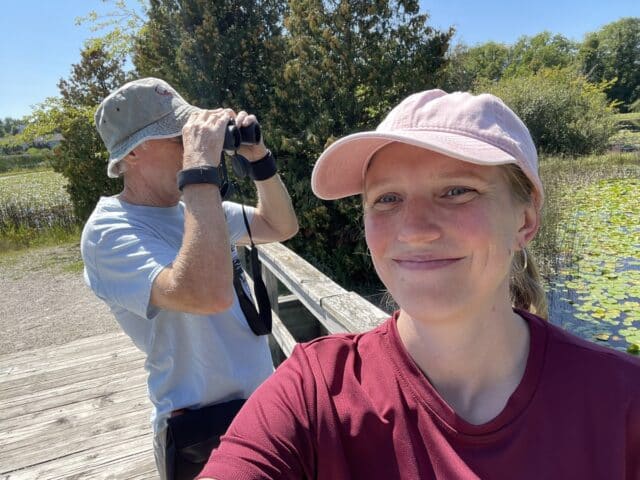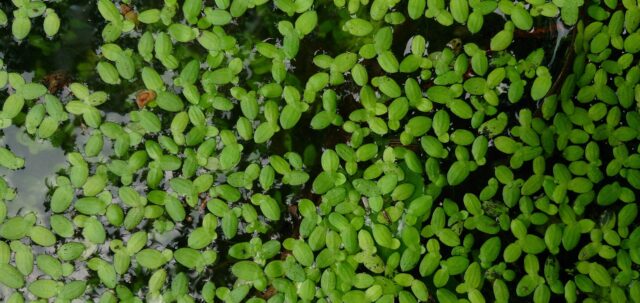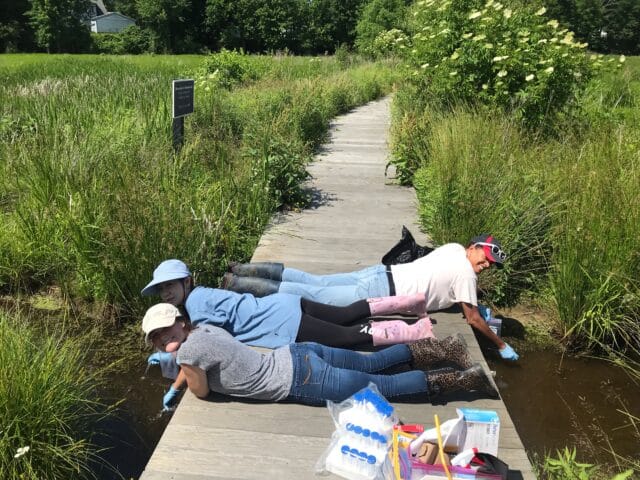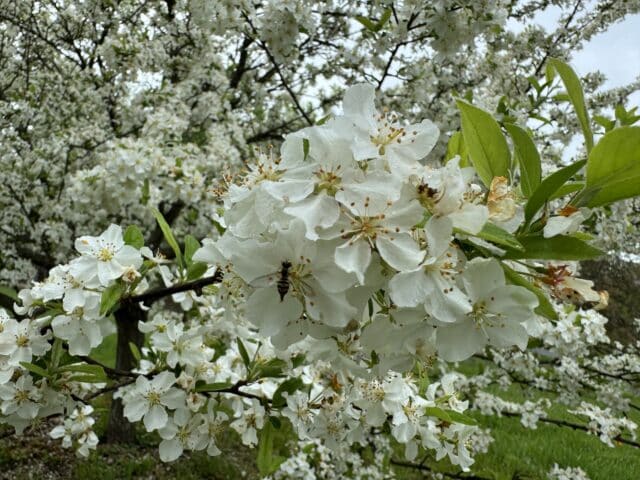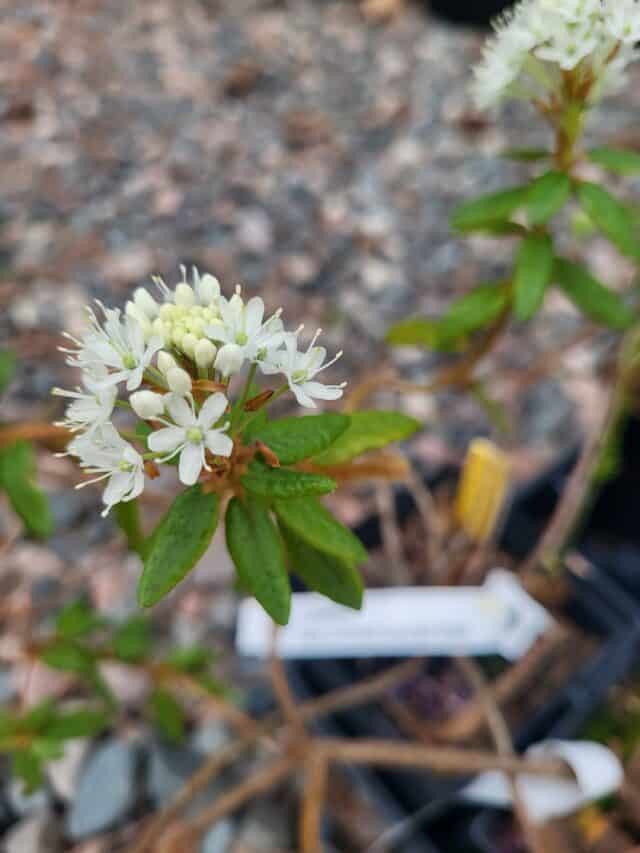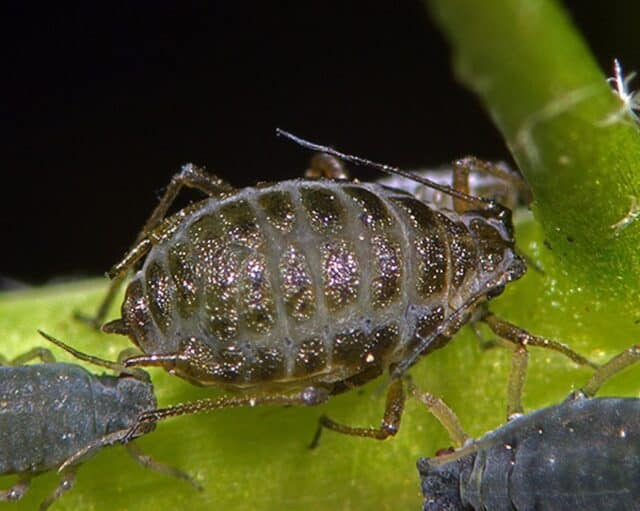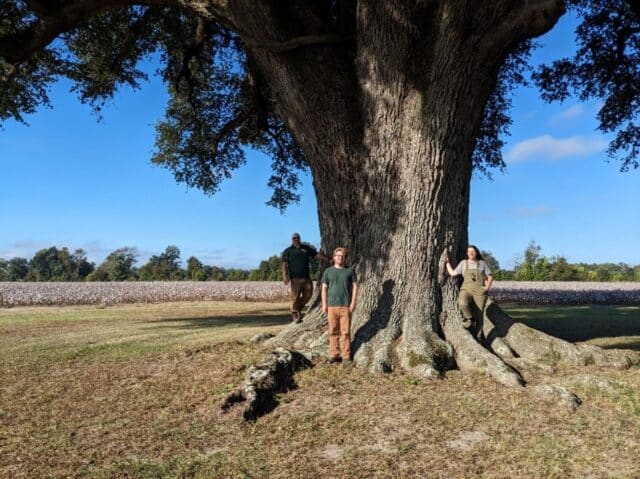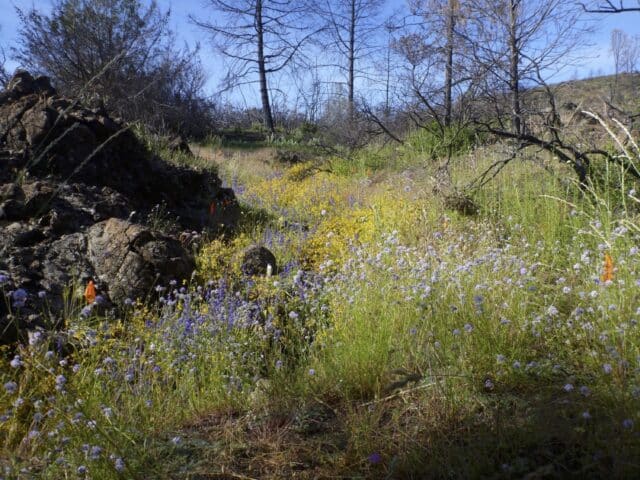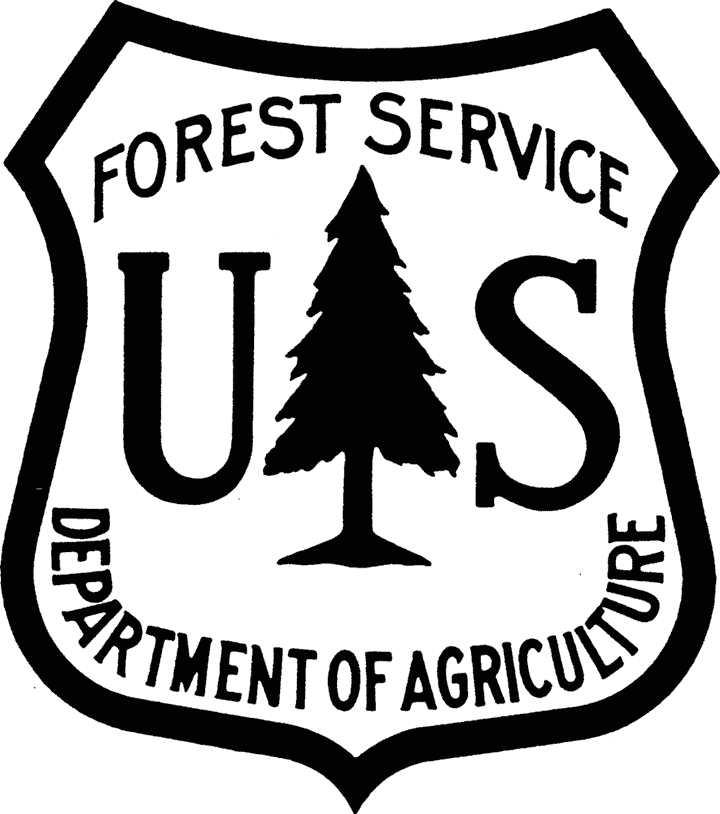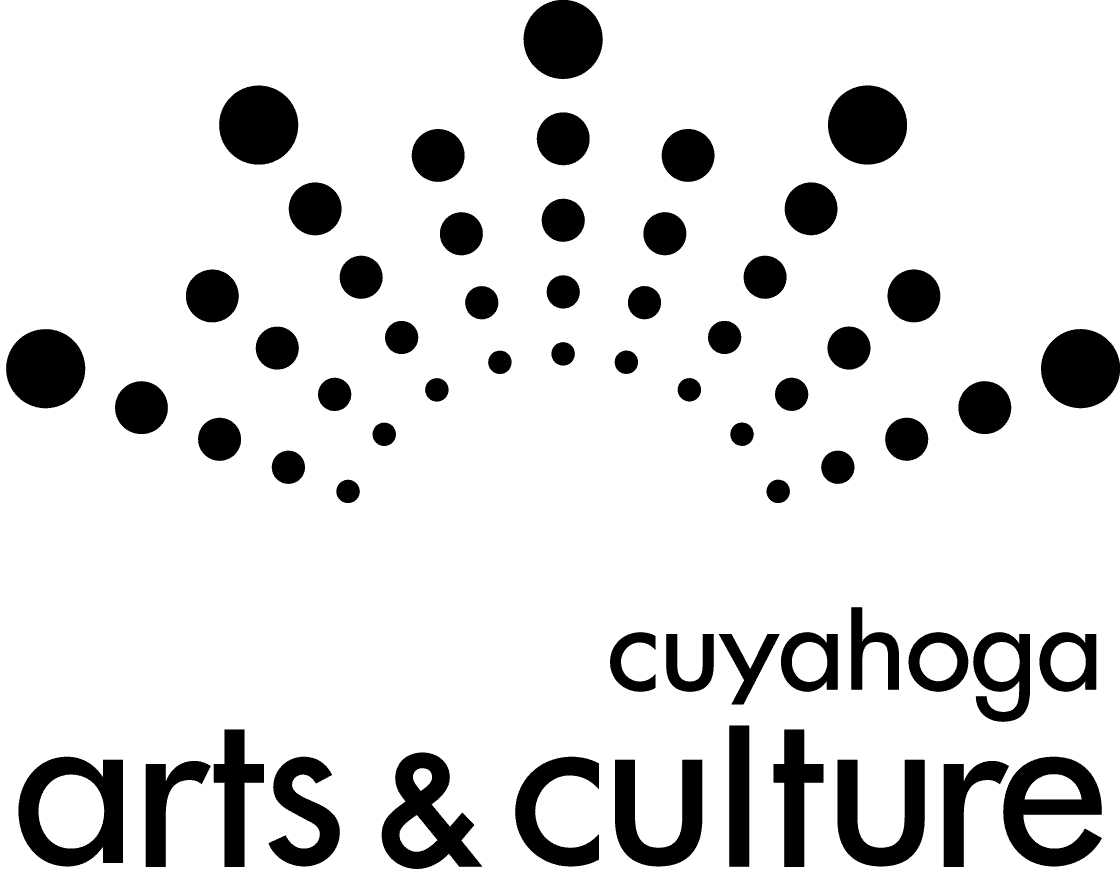Duckweed Hits Classrooms Across Cleveland for a Science Lesson
December 21, 2023
High schoolers across the Cleveland Municipal School District are honing their research skills, thanks to an NSF-funded program at Holden.
Authors: Emily Lewis, Cherise Kent, and Na Wei
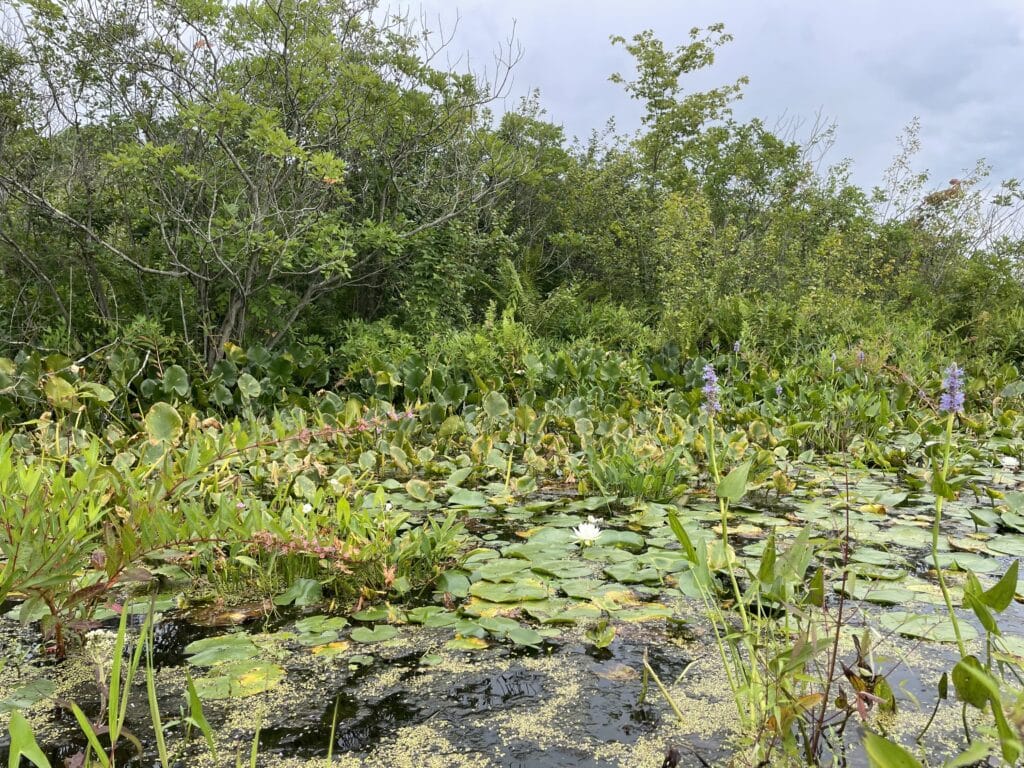
What started as a tiny jar containing just a few duckweed plants is now a healthy population – and it’s spread across high school science classrooms throughout the Cleveland Municipal School District (CMSD). The high schoolers are starting with a simple experiment that touches on a pertinent question: How will this plant fare in the warmer temperatures predicted by climate change models?
The effort is a part of a recently funded NSF grant awarded to Na Wei, scientist at the Holden Arboretum. The program will introduce the students to basic ecological concepts while providing a valuable opportunity to work on an ongoing research project. Cherise Kent, Green Corps Program Coordinator, is leading this science outreach effort.
Duckweed for science outreach
Wei Lab members Emily Lewis and Maris Hollowell collected the common duckweed from the Chardon area and Kent cultivated it for use in the outreach program. Common duckweed is an important native species in Ohio and members of the duckweed family can be found throughout North America. It’s a common misconception that duckweed
is an invasive that must be eradicated; far from it: duckweed is helpful for water filtration and bioremediation, carbon sequestration, creating habitat for aquatic creatures, and is a potential biofuel plant. That’s why this fall, the Wei Lab collected duckweed from over 20 states and aims to conduct a series of experiments exploring whether the microbes associated with the duckweed may influence organismal resilience and ecosystem functioning under climate change.
Research in the High School Science Classroom
Students throughout CMSD, including Green Corps’ Eco-Explorers Club which meets at the Cleveland School of Science and Medicine, will be conducting experiments with the duckweed.
For their investigations, the students are growing duckweed populations in tiny plastic cups — the kind you might get a side of ranch in — both at room temperature and elevated temperature on a heating mat. They then check back in to see if the duckweed populations are growing at different rates between these two treatments.
Read more: Tiny Plant, Big Solutions: Duckweed’s Contentious Reputation and Scientific History
Soon, the students, guided by Kent, will start cultivating a second species of duckweed, giant duckweed (Spirodela polyrhiza) and compare the growth rate of plants growing alone or growing with competitors under several different treatments:
- Each species on its own
- Each species on its own, kept at a higher temperature to model future climate change scenarios
- Both species together
- Both species together, kept at a higher temperature
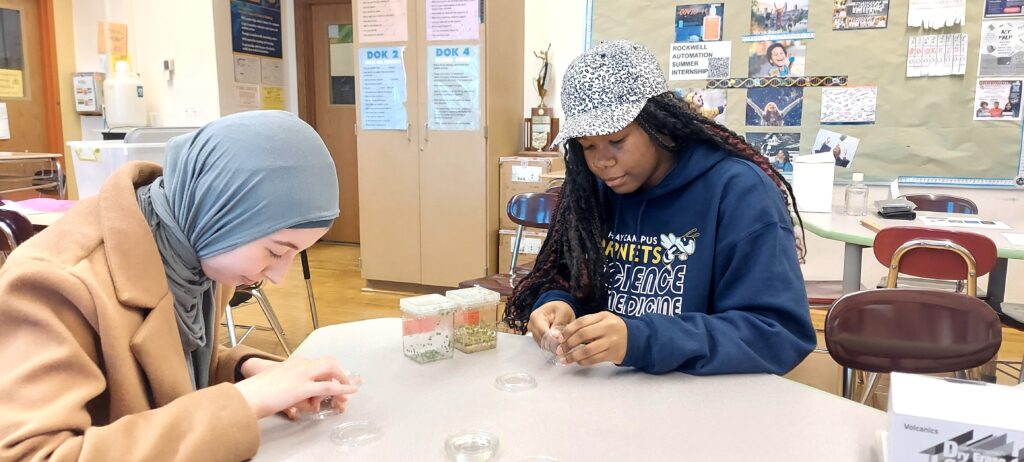
This straightforward experiment introduces many important ecological concepts. First, students are learning about symbiotic microorganisms like bacteria that live on the duckweed, demonstrating how may have important implications for plant responses to climate change.
Second, the research introduces the concepts of species competition and coexistence, particularly under changing environments like warmer temperatures, which are fundamental to ecology and environmental science. Students are asking questions like: Will one species use the valuable resources — in this case, the nutrients in the water and the space in the container — more efficiently or more quickly and grow at a faster rate? Will one species be more successful when both are grown together? And does changing the temperature affect the ability of these species to coexist?
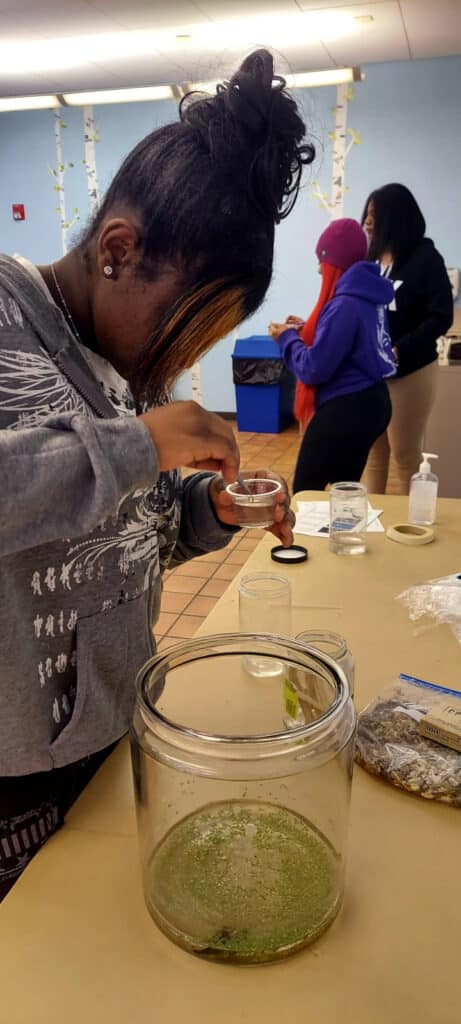
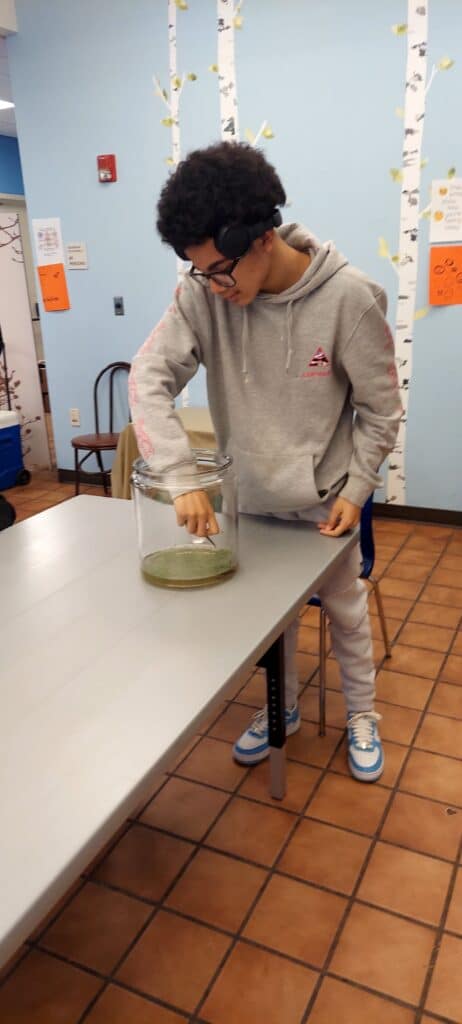
Most of the students in the Eco-Explorers Club come from underserved schools that don’t often have the opportunity to work on ongoing research projects. Kent is also using duckweed as a springboard to talk more about microbiology, and has even had the students working on identifying bacterial cultures on agar plates (no easy feat!) as well as growing bacteria on plates to take back to their own classrooms.
The high schoolers are learning about the microbiology behind making foods like sauerkraut, cheese, and yogurt — that particular lesson finishes with a popular taste-testing party. During the course of their experiments, the students participate in discussions about microbes related to food safety, food creation, and pathogens, with a view towards future possible career paths.
The Wei Lab at the Holden Arboretum and everyone involved in this program are very much looking forward to seeing the experiments the students of Cleveland Municipal School District work on next!
